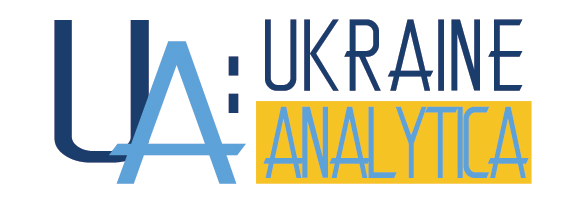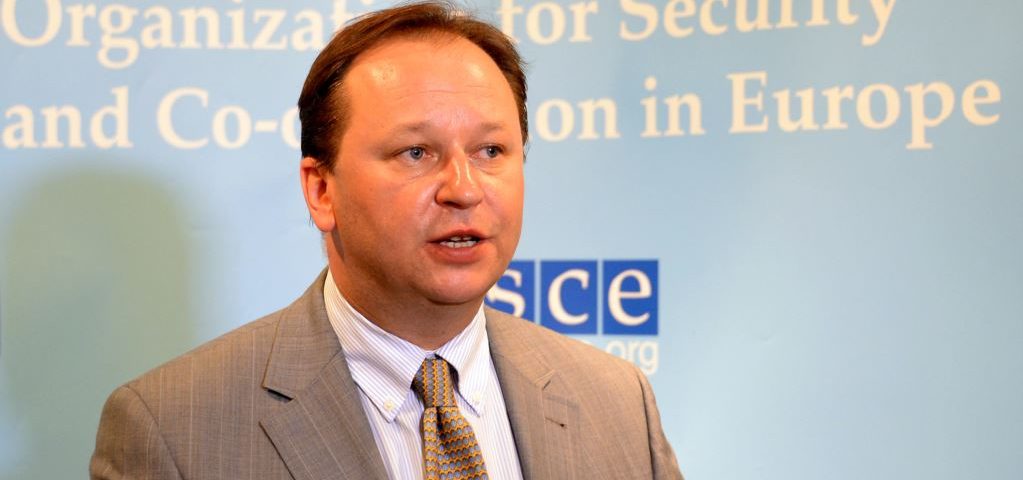Interview with Amb. Ihor Prokopchuk, Permanent Representative of Ukraine to the International Organizations in Vienna
How strong or how weak are international institutions today? International agreements and obligations – are they just a gentlemen’s agreement?
It has often been maintained that international institutions are as strong as their member states wish them to be or allow them to be. The number of international bodies and their participants is constantly growing; their mandates, role, and influence in a modern world undergo regular change. To retain relevance it is necessary to find ways to increase effectiveness in addressing the most pressing challenges on the respective agenda. The OSCE, for example, which has its activities rooted in the norms and principles of the Helsinki Final Act of 1975 and the Paris Charter of 1990, has been confronted in the last four years with the worst security crisis and erosion of trust and confidence. The crisis stemmed from the blatant violation of the core OSCE principles and commitments by the Russian Federation, including those relating to the respect for sovereignty, territorial integrity, and inviolability of frontiers, non-use of force, and non-intervention in internal affairs. For the first time since the Second World War, Europe witnessed an attempted annexation of a part of a territory of a country by a neighbouring country with the use of force.
While this armed aggression has challenged the European security order, it remains essential for the international community to stay united and bring Russia to account, using all available instruments and mechanisms to force it to return to the tenets of international law. This is where international organizations and their toolbox can play their significant role. The lessons of history and the interests of long-term peace and stability demand to make sure that the rule of force does not substitute the force of rule. Lasting security is not for “gentlemen’s agreements” and big power politics in the logic of the 19th century, which has brought so much tragedy and hardship to Europe before.
Ukraine’s consistent position is that we need to preserve the rules-based order in Europe and to strongly and collectively resist Russia’s attempts to shatter it.
What are the OSCE’s strengths and weaknesses in maintaining security in Europe?
The OSCE is the largest regional security arrangement under Chapter VIII of the UN Charter. The list of participating states comprises 57 countries with the overall population of more than a billion people. The OSCE brings together countries located in North America, Europe, and Central Asia, as well as 11 countries – partners for co-operation – from Asia and the Mediterranean. This large geographic outreach provides unique opportunities to promote security and seek common responses to the most urgent, multifaceted, and interconnected security challenges.
A vehicle for promoting collective security and a strength of the OSCE is definitely the extensive normative acquis starting from the Helsinki Final Act and including the Paris Charter for New Europe. Importantly, the participating states have recognized that the agreed norms establish clear standards of behaviour of the states towards their people and towards each other. This strength rests on the OSCE’s comprehensive approach to security, which relates the respect for human rights and fundamental freedoms to the maintenance of peace and security and, therefore, places a large focus in the OSCE activities on its human dimension and interaction with civil society and non-governmental organizations.
Field operations and missions are a valuable asset of the OSCE, enabling presence on the ground, facilitating resolution of crises and conflicts, as well as contributing to strengthening democratic processes and institutions in the respective host countries. The OSCE Special Monitoring Mission (SMM) to Ukraine stands out among other field presences due to its size and difficult operational environment in the conflict area. With its budget of more than 100 million EUR and personnel of nearly 1,200 mission members, the SMM remains a unique tool for gathering information on the situation with security, human rights, and fundamental freedoms throughout Ukraine, most prominently in the conflict area in Donbas suffering from daily military activities of the Russian armed formations.
The OSCE Office for Democratic Institutions and Human Rights (ODIHR), Representative on Freedom of the Media (RFOM), and High Commissioner on National Minorities (HCNM) – these OSCE executive structures are doing an important job in their respective fields. Their expert opinion or assistance is often requested in contentious situations.
The OSCE’s greatest weakness, which at the same time is considered by many as its strength, is a consensus-based decision-making process. Not only does it significantly slow down the adoption of decisions necessary for the smooth operation of the Organization and its executive structures, like the adoption of annual budget, but it also limits the ability of the Organization to timely react to emerging crises or conflict situations. When the core OSCE principles and commitments are flagrantly breached as it happens with Russia’s ongoing aggression against Ukraine, the OSCE has no other tools of bringing the violator to account, seeking compliance with agreed rules and correction of violations, except by politico-diplomatic pressure in the dialogue formats.
Should Ukraine put more emphasis on international organizations in enhancing its security? How can the OSCE contribute to resolving the conflict in the East of Ukraine and restoring Ukraine’s territorial integrity?
There needs to be a combination and synergy of efforts directed at enhancing Ukraine’s security: domestically by maintaining on track the broad-ranging reform process, strengthening Ukraine’s security sector and armed forces, investing in economic growth, as well as externally by effectively pursuing the strategic objectives of membership in the EU and NATO. We will need to continue to aim at effective multilateralism, strengthening the respective mechanisms and instruments of international organizations, which enable the translation of the international community’s commitment to the rules-based security order into collective and effective deterrence of an aggressor state.
Within the OSCE, the Russian aggression against Ukraine has been at the top of the agenda since February 2014, when the Russian Federation launched its illegal occupation of Crimea. During these years, Russia used the consensus rule to evade its responsibility for the conflict by blocking any decisions highlighting this fact. We continue to face the situation when the potential of the OSCE cannot be used to the full extent.
At the same time, the OSCE has produced useful tools for facilitating a peaceful resolution of the conflict started by Russia. In the Trilateral Contact Group, the OSCE representatives perform a mediation function for Ukraine and Russia, contribute to achieving concrete results in relieving security, economic, and humanitarian challenges brought by the conflict. The OSCE has deployed two field missions – the SMM to Ukraine and the Border Observer Mission at two Russian checkpoints on the Russian-Ukrainian border. Unfortunately, the Russian Federation maintains its opposition to the expansion of the mandate of the Border Observer Mission to the entire segment of the Ukrainian-Russian state border not controlled by the Ukrainian authorities. This position serves as a litmus test for Russia’s unwillingness to stop the conflict and withdraw from the territory of Ukraine.
The SMM, for its part, continues to experience significant restrictions to its monitoring in Russia-occupied parts of Donbas. Enough is to point out that in the first six months of 2018 nearly 90% of all non-mine related restrictions to the SMM happened in the territories of Ukraine controlled by Russian occupation administrations. A big challenge remains the denial by Russia of SMM’s access to the Autonomous Republic of Crimea and the city of Sevastopol. These are the realities on the ground, and they are truly challenging. It is important to support the activities of the SMM and press Russia to lift the restrictions, thus enabling the SMM to implement in full its mandate agreed by all 57 OSCE participating states.


